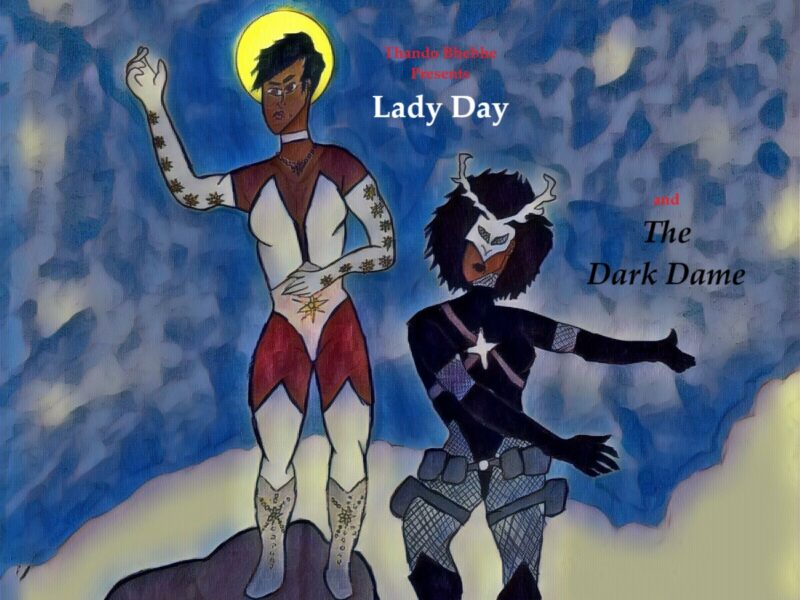Each month, Wilfrid Laurier University Student Publications will feature a charity as part of its new Cause of the Month initiative. For September, the cause is the Canadian Breast Cancer Foundation & CIBC’s Run for the Cure, held on October 3. As no run is taking place in Brantford, we chose to have a member of our editorial board tell about their family’s experiences with this terrible disease.
When I call her, she’s busy sewing. I’m not surprised. For as long as I can remember, fabric has been a large part of Bernice Gillmore’s life. She made clothes for my Barbies, costumes for church plays, a monk outfit for a mannequin my Grade Six teacher used in history class. Some of my earliest memories of her house involve watching her do dress fittings, I think for a wedding. And then, as a little girl, I vowed that if I ever got married, I would have her make my dress.
This time, though, the project is much simpler: a blouse to match a vest and pair of “slacks.” (In my whole life, I’ve rarely heard her say “pants.”) She’s busy adding the cuffs when I call. Even in her late seventies my grandma’s still aware of looking presentable.
It makes sense that this, our conversation about her experiences living with breast cancer, would begin with her sewing. I was standing on a chair near her sewing table when I remember her first ever discussing it openly with me. I was fourteen or fifteen and had returned from shopping with my aunt, her daughter-in-law. Always noticeably petite – the women’s petite sections were often abandoned for children sections – shopping for clothes made me self-conscious. And we had gone looking specifically for swimsuits that day, an even more difficult item to buy. The one we found looked like it was made for racing with a zipper that went right up to my collarbone.
“You know,” I remember my grandma saying while examining an item I’d bought, likely so it could be altered, “that style of swimsuit would be really good for people like me.”
I stared at her. My elderly grandmother shopping for a swimsuit. Awkward. And then she mentioned the mastectomy.
Well, that explains it.
According to the Canadian Cancer Society, an estimated 23,200 women and 180 men will be diagnosed with breast cancer this year. It’s estimated that every week, 100 women die from the disease. My grandmother was part of that first statistic from 1991-1996. After the initial diagnosis, she began taking the drug Tamoxifen. A partial mastectomy was performed. In 2006, during my first semester of university, she joined that statistic again. In all honesty, I thought she would have joined the second one before now. Almost every time my parents call late at night or early in the morning, I expect to be going to the hospital. But somehow, it hasn’t happened yet.
My grandmother has always led a busy, active life. But in 2006, she started having difficulty breathing. And there was pain in the left side of her body. She doesn’t smoke. This time, the cancer was in the lower lobe of her left lung.
“The oncologist, after studying my x-rays simply told us that there was nothing they could do for me,” my grandma remembers. She pauses. “Now, I’m going to be personal here about my faith. And so, when I came out I said to my husband, ‘Perhaps they can’t do anything, but I’m going to ask the Lord to direct me.’”
My grandma loves reading – she often sends us home with old copies of Readers’ Digest. She asks questions, she likes research. But to her, research doesn’t mean Google searches like it does for her grandchildren. It means going to the library and in London where she lives, there are many. And so one day, she found herself in the medical section of the Beacock Branch of the London Public Library. She has books about cancer, but she was looking anyway. And there it was – “right in front of my nose” – Foods That Fight Pain, by Neal Barnard. At first, she just wanted to stop the pain in her back without medication, to “get ahead of the game.”
The book suggested eliminating dairy products – anything produced from a cow, including beef from the diet. My grandma’s cancer cells feed on estrogen, and the hormones injected into the cows could cause the cells to grow. Cow milk was now out and rice milk was in. (She admits she sometimes cheats and has cheese, but still misses hamburger greatly.) Then, she learned about flaxseed, and how postmenopausal women who incorporated ground flaxseed into their diet saw a dramatic reduction in their cancer cells.
Flaxseed was added to the grocery list, and to every baked good. Muffins were made and eaten daily.
Different people will explain what happened next in different ways. The connection between diet and cancer often seems speculative at best. The Canadian Breast Cancer Foundation writes on its website that “The relationship of particular foods or food groups to breast cancer is less clear,” while recommending a healthy diet as prevention against the disease. I only know what she’s told me:
Three weeks after making the changes, she visited the cancer clinic and “The oncologist literally ran through the door, and with my x-rays in his hands, he said, ‘Mrs. Gillmore, we do not understand what’s happening to your body. Your cancer cells are shrinking.’ Now I didn’t jump up for joy, because that was my expectation. … My expectation was, ‘This is going to happen to me.’”
And when my grandma meets a woman with breast cancer, she tells them this story, to know their bodies, to work with their doctors and pharmacists. She tells them the best way to honour her is to tell someone about this.
My grandma lives with a terminal illness. She attends a hospice group monthly for people who also have terminal illnesses, or have lost someone to one. They have reflexology sessions, and cosmetic treatments, and social events. Every three months, a nurse visits at home. A vocal cord was paralyzed, and she had surgery a few winters ago. A malignancy was removed from her face. She still takes Tamoxifen, and encourages people to talk to their pharmacists about medications. Most people don’t believe she’s living with advanced illness – she’s known alternatively as “The Muffin Lady” or “The Miracle Lady.”
She says she’s not surprised by these results, although she admits they may not be scientifically proven, or popular with pharmaceutical companies. The authors of the 2005 study, “Dietary Flaxseed Alters Tumour Biological Markers in Postmenopausal Breast Cancer,” published in Clinical Cancer Research, acknowledge that more research needs to be done, but if the results they saw continue, flaxseed may be a viable alternative to cancer drugs, or at least used in conjunction with them.
But, to be honest, it still surprises me. Science is not my best subject; while my grandma was researching flaxseed, I went to the library and checked out C.S. Lewis’ A Grief Observed, convinced my grandma wouldn’t be there for my second semester of university. Faith, like science, has not always come easy for me.
And it hasn’t for my grandma, but she is grateful: grateful for a husband who has stayed with her in over 50 years of marriage and has taken over some of the domestic duties when she experiences intense fatigue. The man who once had difficulty microwaving hamburger patties now cooks her breakfast every morning. She’s grateful to tell her story to others, although she has yet to meet another woman with breast cancer who has chosen the methods she has.
I no longer expect my grandma to make my wedding dress if that day ever comes. However, if she lives to see it, I won’t be surprised. And if a doctor tells me that I’ve joined the ranks of women living with breast cancer, I hope to pray and eat a flaxseed muffin. And then, just for her, enjoy a final cheeseburger.



